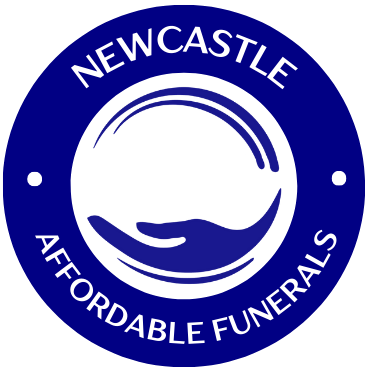When
Death Occurs
General Information FAQ's
What Do I Do When Someone Dies?
When a loved one passes away, the first step is to contact their doctor to certify the death. In most cases, the doctor will issue a Death Certificate, which is necessary before funeral arrangements can proceed.
Once the certificate is signed, Newcastle Affordable Funerals can take your loved one into our care and begin preparations.
If the death occurs in a hospital or care facility, the staff will typically manage the medical formalities and issue the necessary paperwork. However, in certain circumstances, such as unexpected or unexplained deaths, police or the Coroner may need to be involved, and a Death Certificate may not be immediately available.
Please note that the regulations surrounding this process can vary from state to state. For the most accurate information, we recommend contacting the relevant local authorities.
When Does the Coroner Become Involved?
If a doctor is unable to certify the cause of death, it is necessary to contact the police, who will then coordinate with coronial staff. This process is required in situations such as:
- Death from non-natural causes, including violence, accidents, or unusual circumstances
- Death while under anaesthesia or within 24 hours of anaesthetic administration
- Unexpected death
- Death in an institution, prison, police custody, or drug/alcohol rehabilitation centre
- When the cause of death is unknown
- Death of a person diagnosed with dementia
In these cases, coronial staff or a Government-appointed Funeral Director will transfer the deceased to the Coroner.
If the deceased had dementia, police may determine that further action isn’t necessary.
A post-mortem examination (also known as an autopsy) may be conducted by a pathologist to determine the cause of death. Once the process is complete, the Funeral Director will liaise with coronial staff to facilitate the release of the deceased into their care.
We recommend reaching out to a Funeral Director of your choice as soon as possible. Our team at Newcastle Affordable Funerals is here to guide you through this process with compassion and professionalism.
Who is Responsible for Arranging a Funeral?
In most cases, the Next of Kin is responsible for arranging the funeral. This typically includes a spouse, child, parent, legal partner, or sibling of the deceased.
If there is a dispute, and a valid Will is known to exist, the Executor named in the Will has the legal authority to make funeral arrangements. The Executor may also choose to appoint someone else—such as a family member or friend—to liaise with the Funeral Director. However, these situations are uncommon, and funeral arrangements are usually made by the Next of Kin.
In cases where the deceased has no known relatives, such as in hospitals or aged care facilities, a Social Worker or authorised representative may step in to make the necessary arrangements.
At Newcastle Affordable Funerals, we're here to support you through this process with clear guidance and compassionate care.
Which is More Popular - Burial or Cremation?
Across Australia, more people are choosing cremation as their preferred funeral option. While preferences vary slightly between states and territories, cremations now outnumber burials—particularly in metropolitan areas where crematorium facilities are more accessible. In contrast, burials remain more common in rural and remote regions.
The choice between burial and cremation is deeply personal and may be influenced by cultural, religious, or family traditions. For example, some faiths may prohibit cremation, while others—such as Hinduism—regard it as the customary practice.
Ultimately, the decision rests with the individual or their family. As cemetery space becomes increasingly limited in urban centres, cremation is expected to remain a popular and practical option for many Australians.
How Much Choice Does the Family Have in Funeral Arrangements?
The family has absolute choice with certain exceptions as in the case of Coronial investigation in some murder cases, where permission may be given for a funeral by burial only.
A Funeral Director can volunteer options to a family but ultimately it is the family’s right to choose whatever they wish, providing necessary legal requirements are met. There may be some variation between states and territories within Australia, however, in most instances relevant Health Departments require the deceased to be placed in a coffin or casket for burial or cremation. In the case of cremation the coffin or casket must be combustible.
Again in certain states funerals may be Government assisted in the event of insufficient funds. Such funerals have limitations on choices. Advice, when necessary, should be given in the first instance by a Funeral Director, Social Worker or relevant Government Office.
How Much Will a Funeral Cost?
This is one of the most common—and important—questions we’re asked. Much like building a home, the cost of a funeral can vary widely depending on the choices made. While some elements have fixed fees (such as legal documentation or cremation permits), others are flexible and based on personal preference.
While cremation is often more affordable than burial, this isn’t always the case—especially if the family already holds a burial plot that allows for additional interments. In such cases, only reopening and interment fees may apply, which can affect the overall cost.
Funeral costs generally fall into three main categories:
- Professional service fees – for the coordination and delivery of services
- Disbursements – third-party costs such as cremation fees, doctor’s certificates, and death certificates
- Coffin or casket selection – based on material, design, and preference
At Newcastle Affordable Funerals, we focus on transparency and affordability, offering simple cremation packages with no hidden costs. For tailored advice, we’re always happy to talk through the available options.
What is Embalming and When is it Required?
Embalming is a process where the body’s natural fluids are replaced with specialised chemicals to:
- Help preserve the body
- Prevent the spread of infection
- Improve the presentation of the deceased for viewing
Embalming is not always required. In many cases, minimal or no embalming is needed—particularly when a cremation or burial is scheduled soon after death. Partial embalming may be chosen for family viewings or when the service is held within a few days. Full embalming is more common in certain cultural traditions or when the deceased is being repatriated interstate or overseas.
At Newcastle Affordable Funerals, we can discuss your specific needs and guide you through whether embalming is necessary based on your circumstances.
Is a Viewing of the Deceased Necessary?
A viewing provides family and friends with the opportunity to see and spend time with their loved one before the funeral. In some cultures, viewings are an important part of the funeral service itself. In cases where a death has been reported to the Coroner, an identification viewing may be required at the Coroner’s facility before funeral arrangements can proceed.
In some states, it is a legal requirement for someone who personally knew the deceased to complete an official identification form, which must be sighted and retained by the crematorium before cremation can take place.
While viewings are not mandatory, they are often considered to have therapeutic value, helping people come to terms with their loss. Whether to hold a viewing is a deeply personal decision and should be approached with care. The setting, environment, and individual preferences should all be considered.
Children may also attend a viewing, provided the situation is explained to them in age-appropriate language. It’s important they feel supported—and that they have the choice to participate or not.
At Newcastle Affordable Funerals, we’re here to help you navigate this process with compassion, ensuring any viewing is handled with dignity and respect.


